It happens so fast, the slipping back into sleep, the slow dissolve to the dream. So instantly does society immerse you, your senses bombarded from the second you reconnect: the dull roar of commerce and cacophony of sounds; the oppression of little red dots and allure of well-stocked shop windows; a full-sensory assault on your attention, carefully orchestrated to convince you that what you lack lies in fiduciary exchange.
The true colors of the farm, the forest, the cliffs, the star-splattered sky, these things start to fade: the brilliant vermillion of fresh-plucked tomatoes, verdant fistfuls of long beans and aromatic piles of basil, squash blossoms and ridged limbs of kale. The holistic exhaustion of a hard day’s work hauling a καροτσάκι (wheelbarrow); the feeling of χώμα (dirt) caked on your skin and sun-baked in your sweat. The sweet tang of manure; the earthy warmth of hay and olive leaves fed to smiling goats who prop themselves up on the trough by their front hooves for a better reach. The aliveness of working with your body; the forced presence of a frantic Greek planting, delicate starts dropped into punctures in the ground at breakneck speed. The feeling of soft, feathery soil enveloping your hands in cool embrace as you plunge them downward; the sudden realization that death is nothing to fear, because swaddled in the dirt like this, you’re already on your way to becoming something else.
You fall into this life as quickly as you fall out of it. The first two days are always hard; then it’s like you’ve always been there. Snapshots of receding memory conjure the community and camaraderie of the team, sharing sweat, struggle, and stench, but also sweet reward; the ability to look upon the physical plane and see it positively altered. The immediacy with which you become a family, everyone assuming their roles; learning each others’ eccentricities, waiting to eat, worrying when someone has been gone for what seems like too long. All of it revolving around food: growing, harvesting, cooking, and consuming it; bonded to each other and to the land, plants, and creatures through these tasks, like different organs of one corporeal entity. And this farm, too, is embedded in a symbiotic matrix of others who live the same way.
Through it all, you start to realize that maybe, what you’ve been told isn’t true. Suddenly, the system doesn’t seem so obligatory after all. It all feels like an ancient remembering, a reclamation. Maybe there really is another way.
Maybe you can opt out.
And then you leave, and you start to forget. Warm showers go from sweet luxury to urgent expectation within a day; you’re cursing download speeds and yelling at traffic by week’s end. There are deadlines and tasks, correspondence and social obligations, and suddenly, your time seems even less your own than when you were someone’s farmhand. Instead of one agrarian master, you answer to the infinite entities of the capitalist regime: anesthetized by apparent comforts, the siren song that calls you to sweetly dash your brains upon the cliffs. You don’t really need these things, but it’s so hard to resist the feeling that you do amidst the constant bombardment of consumption culture. Life seems so much easier when it’s transactional, with the illusion of infinite choice.
In Greece, I lived and learned with three different hosts through the Workaway program, and these immersive, Emersonian encounters jolted me from my reverie and realigned my perspectives; they did nothing short of change my life. And this happened not only through the reconnection with nature and nourishment, but by giving and receiving love with others in a pure, authentic way, without expectation and in spite of fear. After years of armoring, my calcified heart cracked wide open, and these people I had only known for 10 days, they became family, and I loved them, and I was vulnerable and real and they loved me right back, exactly as I was. When we said goodbye, we had tears in our eyes, and as the car carrying me slowly pulled away, they followed me to the fence with outstretched hands, faces pressed against the grate.
But opting out isn’t easy. This is why more people don’t do it, I thought while shoveling rocks or swinging a pickax or hauling wheelbarrows of hard clay in the blistering Grecian heat; or while the wind whipped dirt into our eyes as we hacked at networks of weeds with deep, insidious roots; and as we shivered in open-air structures while the season changed. When you think of returning to the land, bucolic images of long-haired youth in yurts passing plates of organic vegetables around the farmhouse table may come to mind, and some moments in my experience looked a bit like that—but to get there, you have to work your fucking ass off, and you often can’t stop until the project is done. These are no arbitrary clerical deadlines; if you miss your target date, you might not eat.
To transform the soil deadened over decades of industrial contamination into something yielding and fertile requires hundreds of hours of hands in the dirt: tilling and digging and hauling hay and manure, foraging fungi-covered logs, facilitating the breakdown of huge piles of organic material that must be returned to the earth one cartful at a time. To plant properly requires carefully adhering to lunar calendars, reading the signs of your surrounds; watering diligently and in right proportion; properly protecting from pests. To harvest, you must pluck just here, just so; you must mindfully trim and tend so as not to overstrip. To live off the land you must build structures and construct networks utilizing the elements, harnessing the powers of fire and water and air, and also of people, forging reciprocal systems of barter and trade. To be sustainable you must minimize chemical intervention and mechanical input, which requires muscle and sweat, swinging and digging and hauling, hammering with blunt instruments, pulling up every last weed, building toilets and showers and other facilities out of wood and stones and holes in the ground.
Can you truly opt out? I don’t know. But you can choose to live another way. People are already doing it, and it’s not as impossible as we’ve been led to believe. We’ve been taught that opting out of the system limits our choices, but in fact, the opposite is true: infinite creativity can come from what seems like constriction, simply by focusing your attention and freeing the mind that so easily wanders when your basic needs are effortlessly, thoughtlessly satisfied.
It all requires surrender: turning over your will to a cyclical universe; learning to work with the energies rather than fortifying yourself against them, waiting for the right conditions before you emerge. You go out even when it’s cold, when it’s raining, in the soul-crushing heat. You give up what you’ve come to believe are comforts and the illusion of autonomy offered by the separatist paradigm. You go to the market and learn to look for the smaller, imperfect yields. The biggest, brightest, most apparently abundant crops are the ones that are artificially fertilized. The truth is blemished, misshapen, and slightly bruised, yet for it is all the more beautiful.




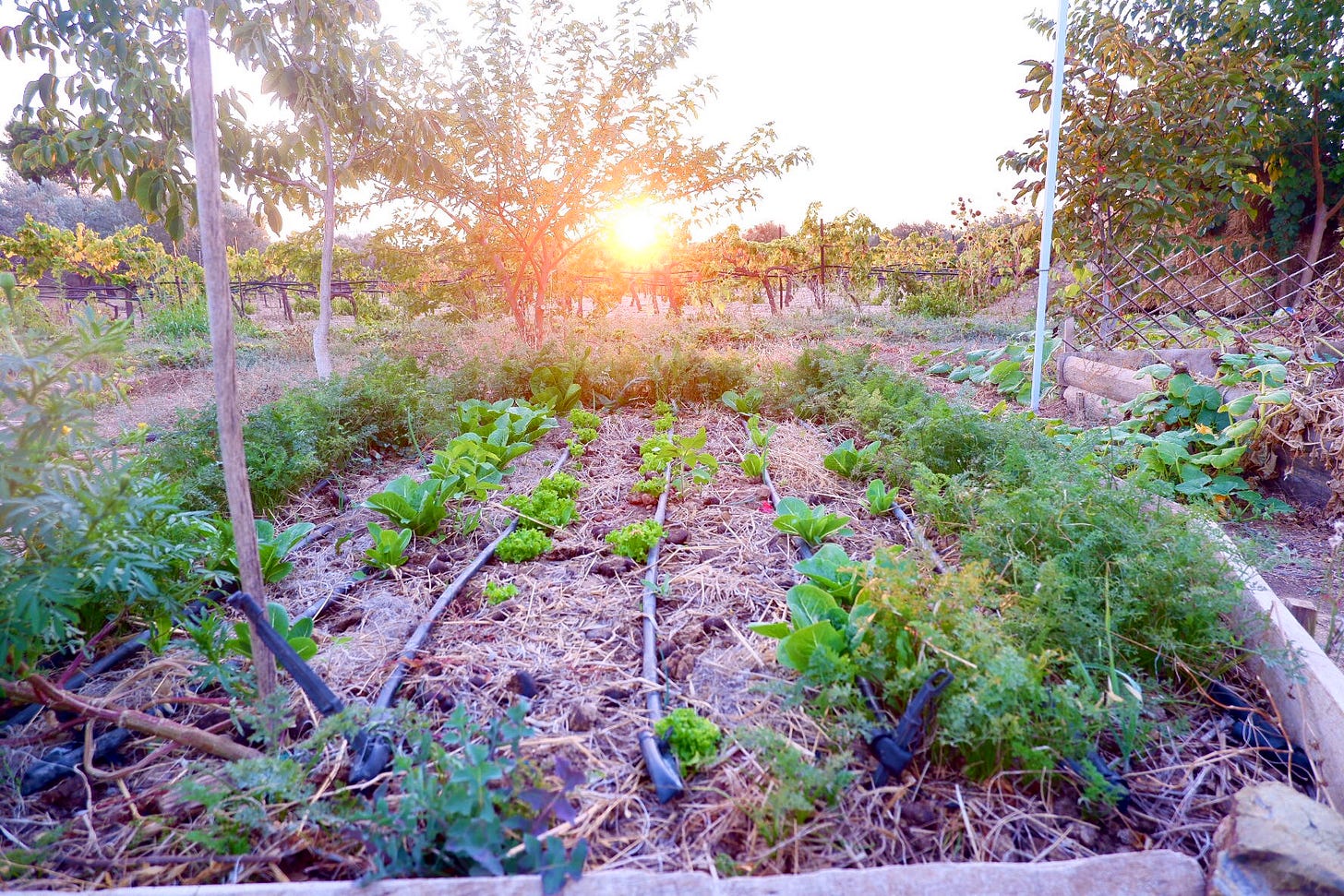
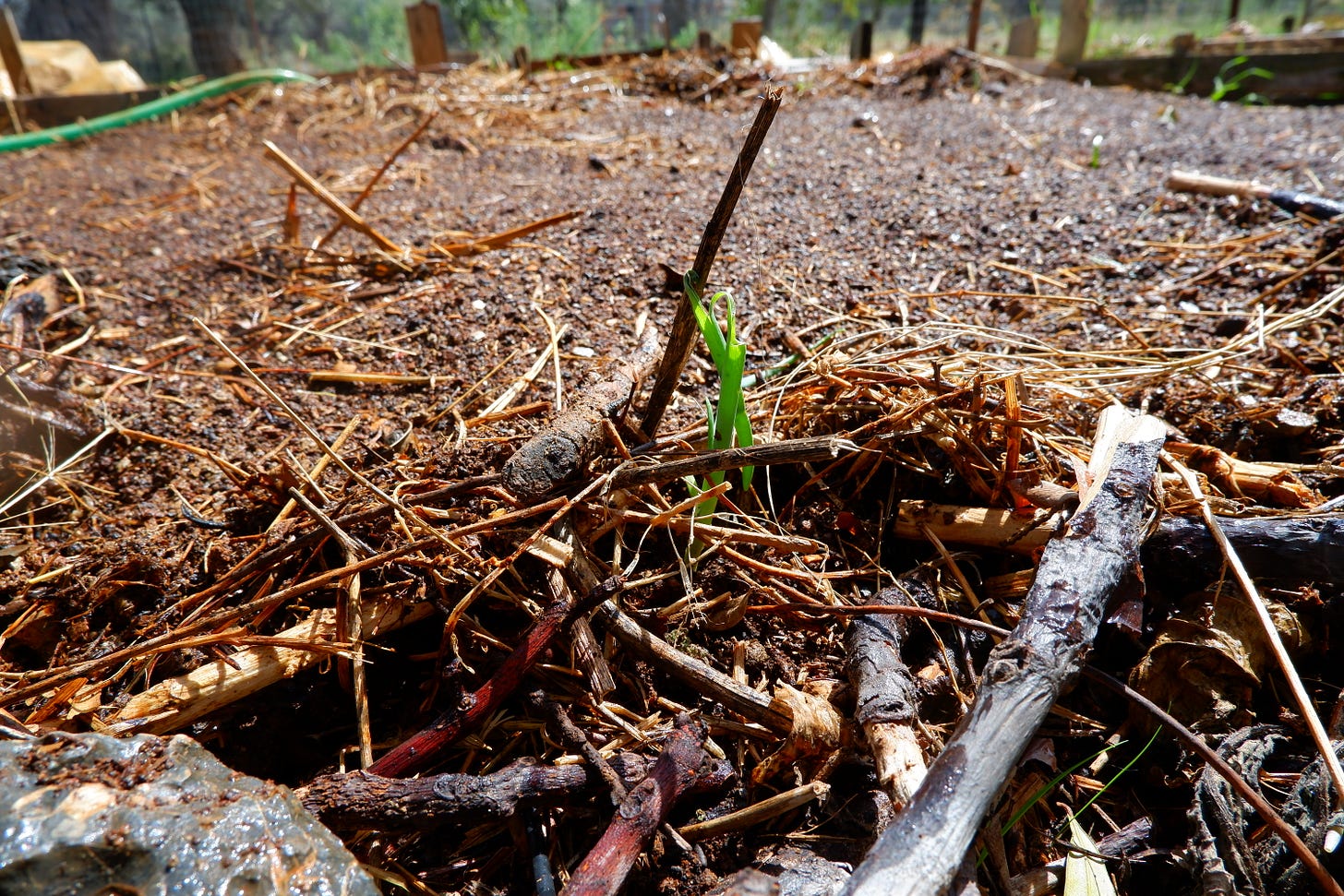

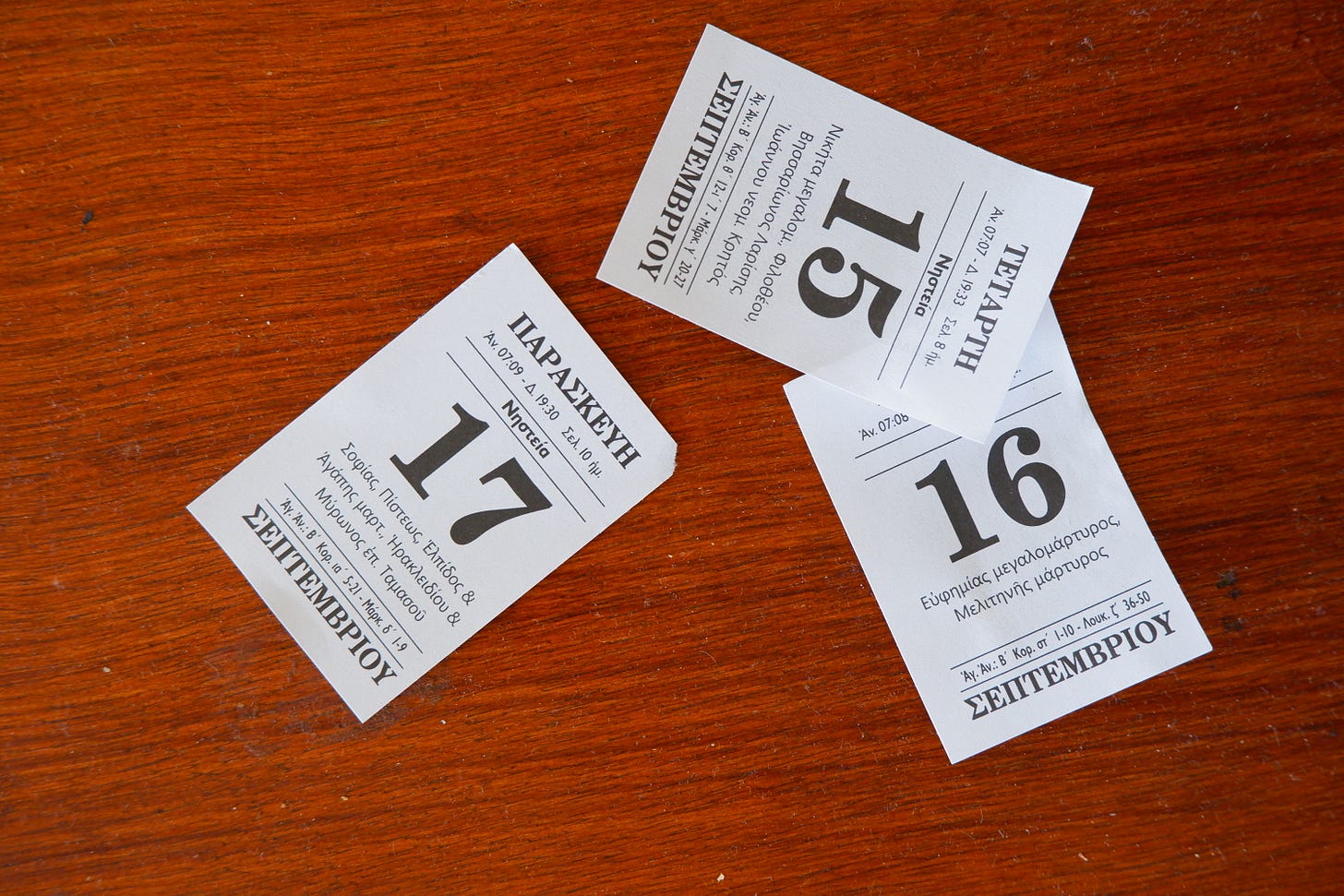
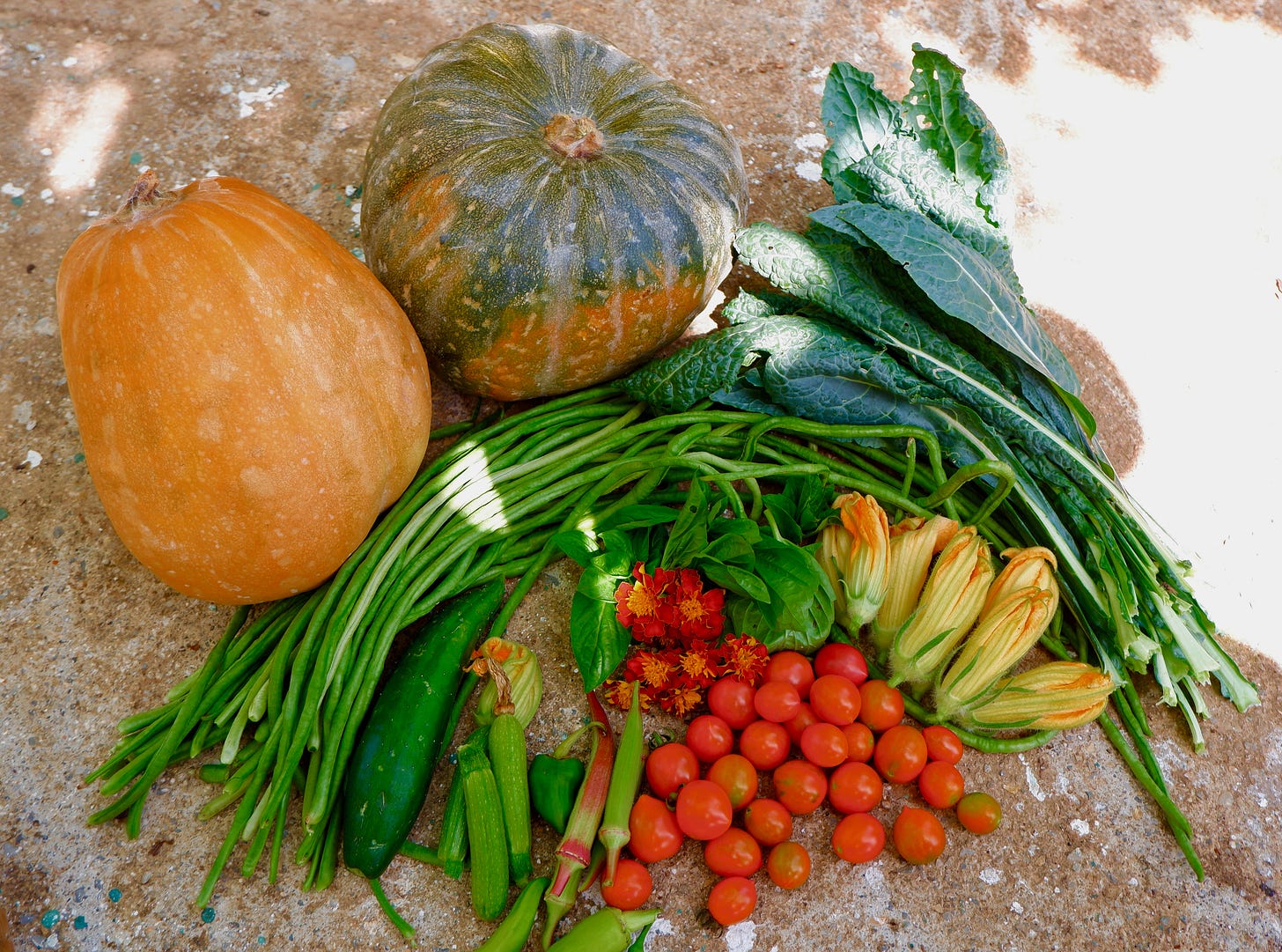
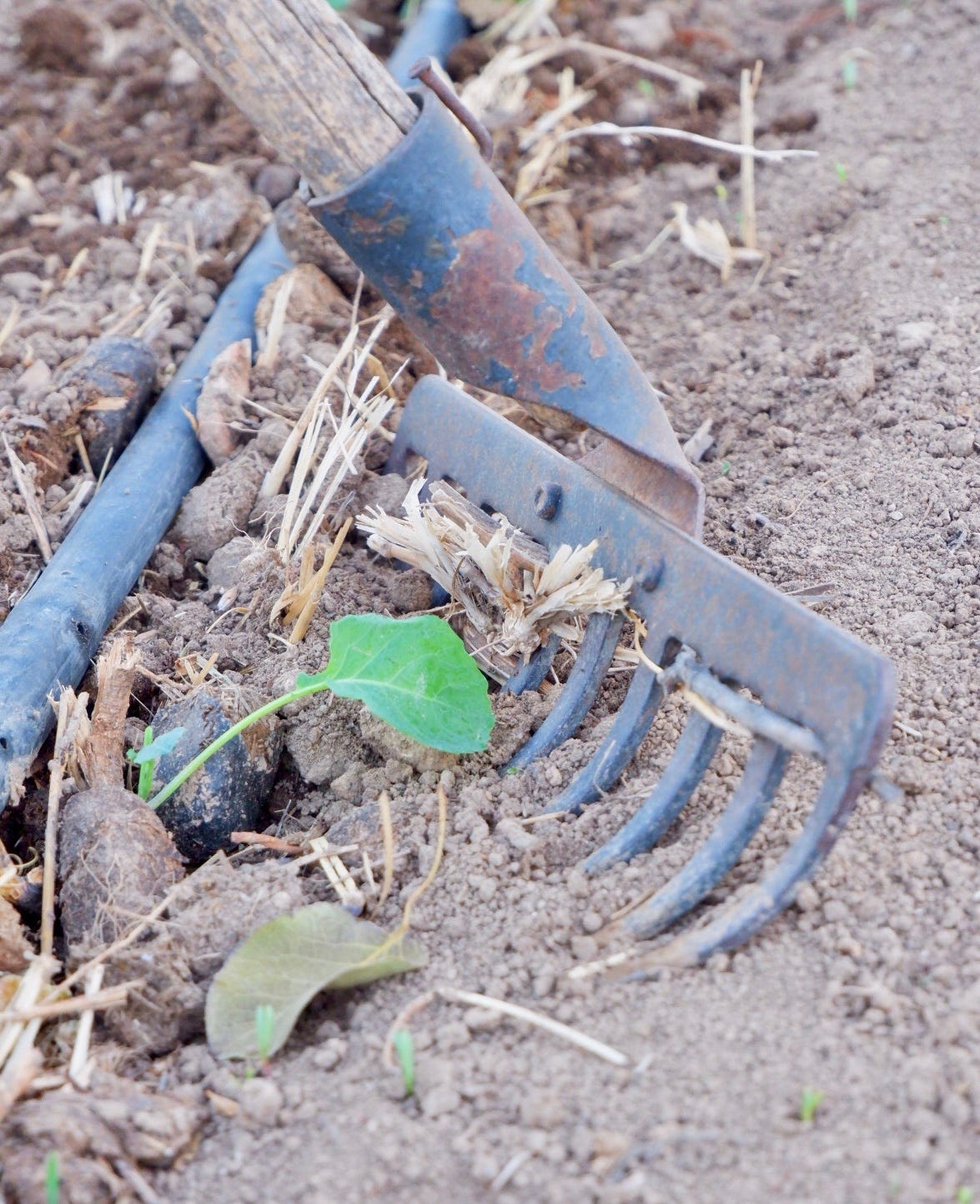
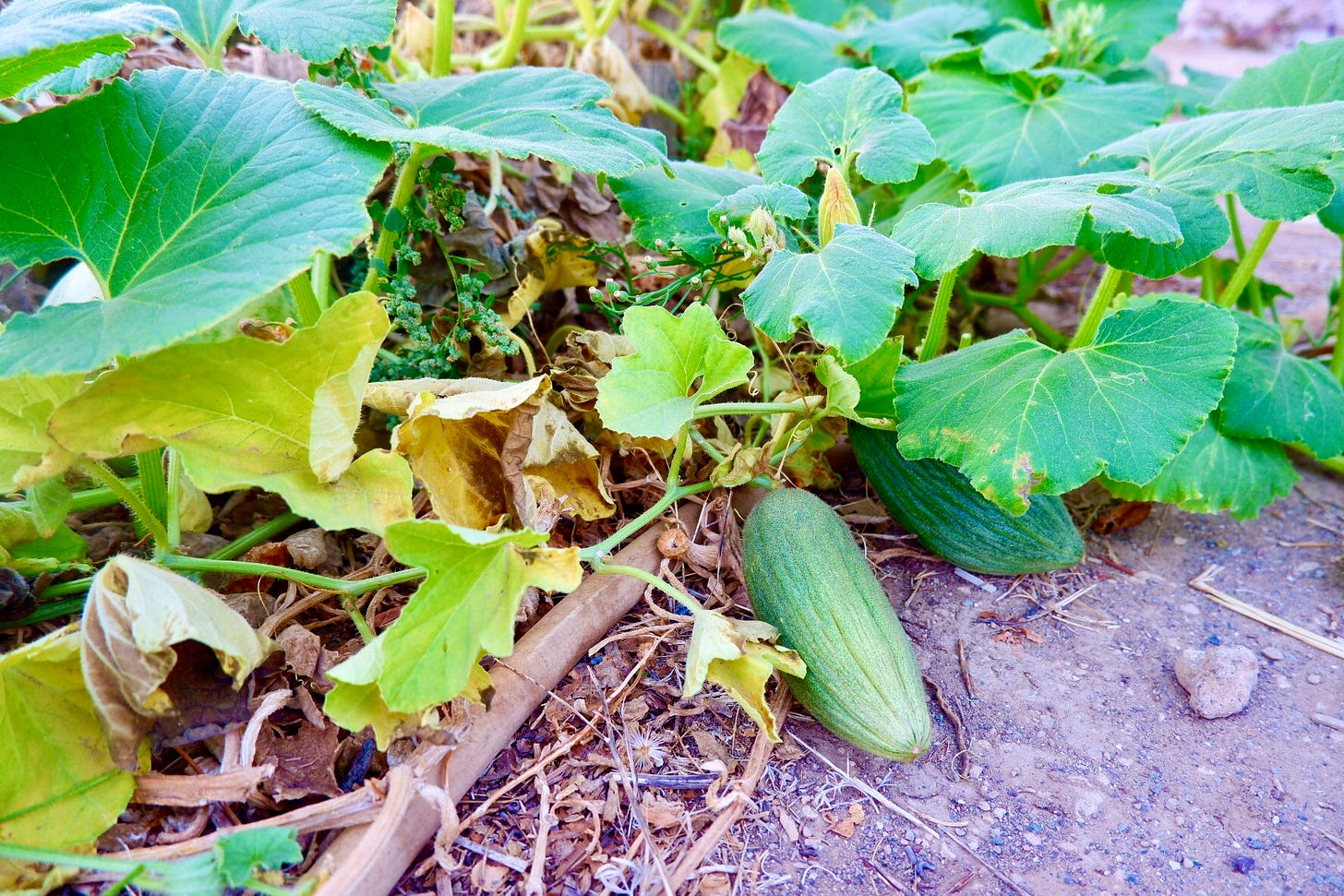

All Poems could be you and all Souls are One.Estimating the match between being hungry and feeling the gratitude after actively collaborating with soil to see the food being born.Birth of all kind is always magical and mysterious to my inner eyes.Thank you for sharing your richness in nature Holy.